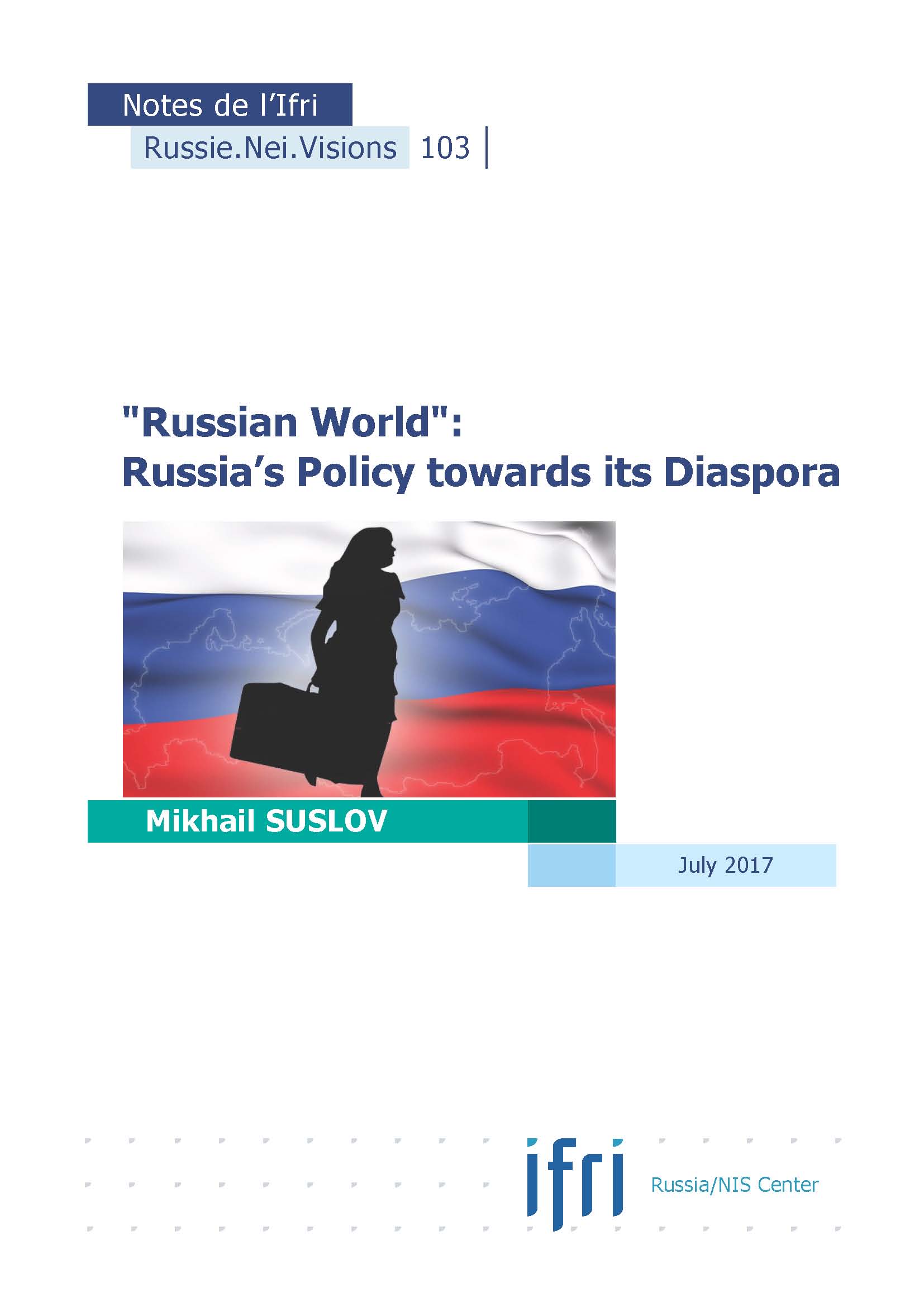“Russian World”: Russia’s Policy towards its Diaspora

This paper examines how the large Russian-speaking population outside Russia has been ideologically constructed and politically instrumentalized by the Kremlin’s leadership.
It traces the evolution of the diaspora policies and visions from the early 1990s to the present, and argues that the understanding of Russian “compatriots abroad” has never been the same; rather, it travelled a long road from revanchist irredentism of the red-brown opposition in the 1990s, to the moderately liberal pragmatism of the early 2000s, to the confrontational instrumentalization of Russian “compatriots” as a lever of Russia’s soft power in the late 2000s, and, finally, back to the even more confrontational, irredentist and isolationist visions after the Ukrainian crisis of 2014.
Mikhail Suslov is an assistant professor of Russian history and politics at the University of Copenhagen. His research focuses on Russian intellectual history, conservative, right-wing and religiously-motivated political ideas, geopolitical ideologies and socio-political utopias.
Download the full analysis
This page contains only a summary of our work. If you would like to have access to all the information from our research on the subject, you can download the full version in PDF format.
“Russian World”: Russia’s Policy towards its Diaspora
Related centers and programs
Discover our other research centers and programsFind out more
Discover all our analysesRussia, the Palestinians and Gaza: Adjustments after October 7th
The Soviet Union (USSR), and subsequently the Russian Federation as its internationally recognized legal successor, has consistently sought to play a visible role in efforts to resolve the Israeli-Palestinian conflict.
Deathonomics: The Social, Political, and Economic Costs of War in Russia
The report attempts to outline and examine a truly new phenomenon in Russian society, dubbed “deathonomics”—the making of a mercenary army against the backdrop of the Kremlin’s war in Ukraine, eventually replacing both the Soviet (conscript) and early new Russian (contract) armies. It notes that, by the end of 2023, this trend had turned the military service into one of the highest-paying professions in the country, something not seen in Russia on such a scale since the late 17th century.
Russia's Asia Strategy: Bolstering the Eagle's Eastern Wing
Among Russia’s strategic priorities, Asia traditionally played a secondary role compared to the West. In the mid-1990s, then Foreign Minister Yevgeny Primakov initiated a rapprochement with China and India. Then, in 2014, deteriorating relations between Russia and the West prompted Moscow to begin its “great pivot to the East”.
Kazakhstan After the Double Shock of 2022: Political, Economic and Military Consequences
The year 2022 represented a dual shock for Kazakhstan. In January, the country faced its most severe political crisis since independence, followed in February by Russia’s full-scale invasion of Ukraine, which cast uncertainty over the borders of post-Soviet states. These consecutive crises profoundly shaped Kazakhstan’s domestic and foreign policy.











